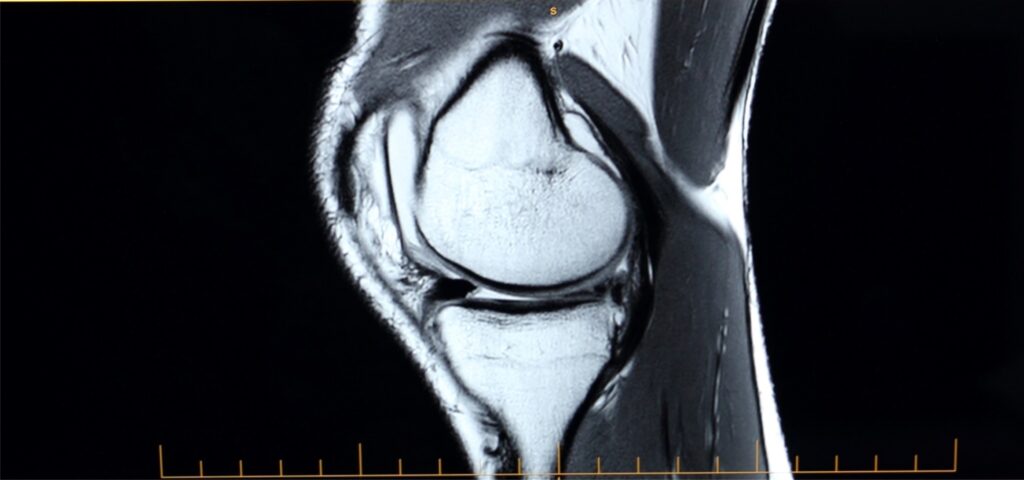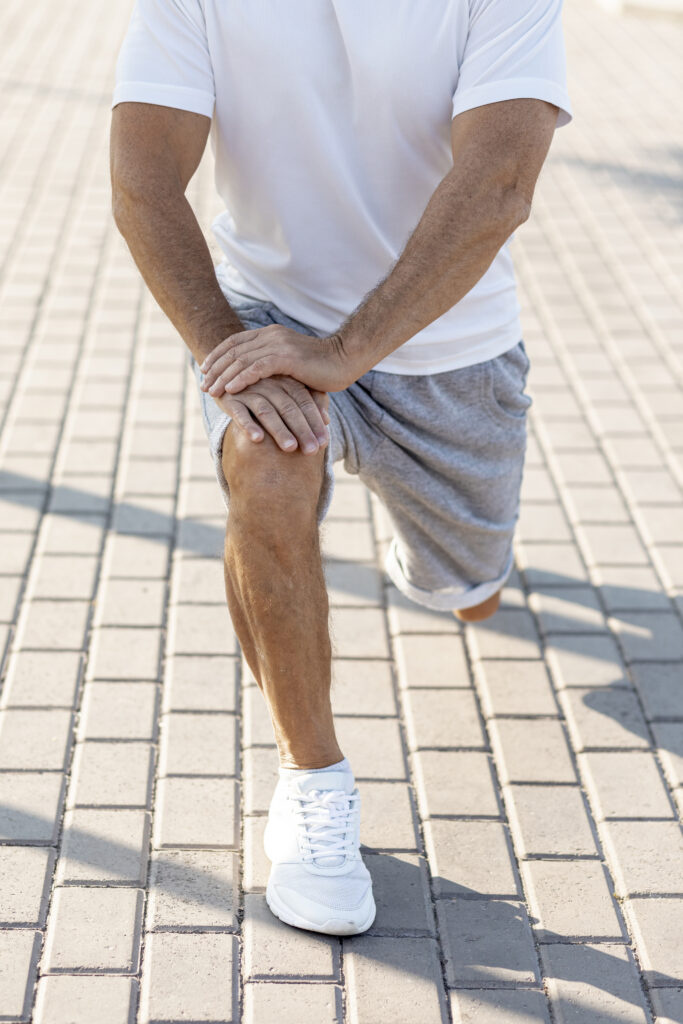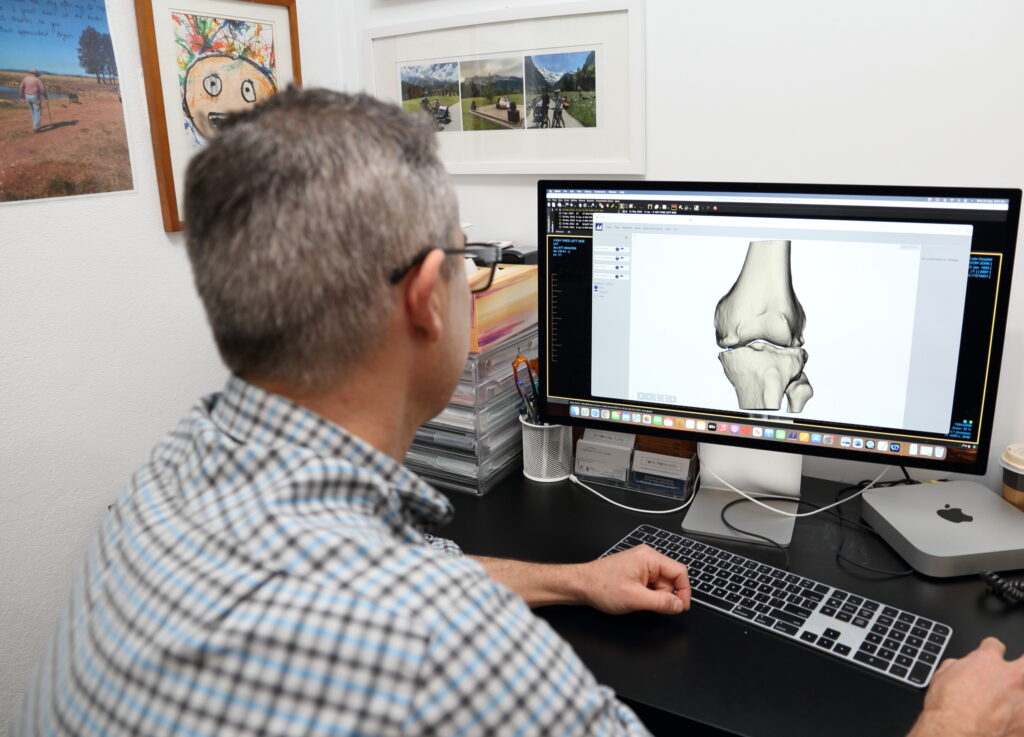Knee Arthritis
A degenerative knee condition that may lead to pain, swelling, stiffness, and reduced function over time.
Knee arthritis is a common condition that affects millions of people worldwide, causing pain, swelling, and reduced mobility. It occurs when the cartilage that cushions the knee joint wears down over time, leading to bone-on-bone contact. Understanding knee arthritis is crucial for effective management and treatment.

SYMPTOMS OF KNEE ARTHRITIS

Knee arthritis can present differently from person to person, but the symptoms often begin gradually and tend to worsen over time. You might first notice a dull ache around the knee joint, which may become more noticeable with activity or after periods of rest. As the condition progresses, it can begin to affect your ability to walk, bend your knee, or move comfortably throughout the day.
Common symptoms of knee arthritis may include:
- Persistent pain in the knee joint
- Swelling and tenderness around the knee
- Stiffness, especially after periods of inactivityReduced range of motion
- A grating sensation or sounds when moving the knee
- Deformity or instability in severe cases
If these symptoms begin to interfere with your usual activities or quality of life, it may be time to seek advice from your GP or get a referral to see Dr Martin.
TYPES OF KNEE ARTHRITIS
Several forms of arthritis can affect the knee, each with different causes and patterns of joint damage. Understanding the type of arthritis you have is an important step in determining the best treatment approach.
Several forms of arthritis can affect the knee, each with different causes and patterns of joint damage. Understanding the type of arthritis you have is an important step in determining the best treatment approach.
Osteoarthritis (OA)
Osteoarthritis is the most common type of arthritis affecting the knee. It involves gradual wear and tear of the cartilage that cushions your joint, leading to pain, stiffness, and reduced mobility. OA usually develops over time and is more common in older adults, although it can affect younger people after injury.
Common symptoms:
Pain during or after activity
Stiffness, particularly in the morning or after rest
Swelling and tenderness
Clicking or grinding with movement
Reduced flexibility and range of motion
Causes of osteoarthritis:
Age-related cartilage degeneration
Previous joint injuries (e.g. ligament tears, fractures)
Obesity, which places added strain on the joint
Family history of osteoarthritis
Treatment options:
Non-surgical: Pain relief medication, physiotherapy, weight loss, activity modification
Surgical: Arthroscopy, osteotomy, partial knee replacement, or total knee replacement in advanced cases
Inflammatory Arthritis
Inflammatory arthritis refers to conditions where the immune system attacks the joint lining, leading to inflammation and joint damage. These forms of arthritis can affect people of any age and are often associated with symptoms in multiple joints.
An autoimmune condition that causes chronic inflammation in the joint lining (synovium), leading to joint damage over time.
Symptoms:
Swollen, warm, and tender joints
Morning stiffness lasting longer than an hour
Fatigue and general unwellness
Often affects joints on both sides of the body (symmetrical)
Systemic lupus erythematosus can cause joint pain and swelling, along with other symptoms affecting the skin, organs, or general health.
Symptoms:
Joint pain and swelling
Fatigue, skin rashes, and systemic symptoms
Gout is caused by a build-up of uric acid crystals in the joint, often triggering sudden, intense pain.
Symptoms:
Sudden, severe joint pain
Swelling, redness, and warmth
Most commonly affects the big toe but can involve the knee
Understanding the type of arthritis affecting your knee is an important step toward developing an effective treatment plan.

DIAGNOSING KNEE OSTEOARTHRITIS

Dr Martin takes a comprehensive approach to diagnosing knee osteoarthritis. This ensures personalised care and effective treatment plans, tailored to your unique needs:
If these symptoms begin to interfere with your usual activities or quality of life, it may be time to seek advice from your GP or get a referral to see Dr Martin.
Your consultation begins with a comprehensive review of your medical history. Dr Martin will delve into your overall health, previous medical conditions, medications you are currently taking, and any prior knee injuries or surgeries. You will also discuss the onset of your knee pain, its timeline, the nature of the pain (e.g., sharp, dull, persistent, intermittent), and any specific movements or activities that worsen or alleviate the pain.
Dr Martin will engage in a detailed conversation about your knee pain symptoms. Expect to answer questions about the pain’s exact location, whether it radiates to other areas, its severity on a scale from 0 to 10, and how it affects your daily life and activities. This information helps create a detailed picture of your condition and its impact on your well-being.
A physical examination of your knee and the surrounding areas is a critical step in your consultation. Dr Martin will evaluate your knee’s range of motion, strength, stability, and check for tenderness or pain. Specialised tests will also be conducted to pinpoint the source of your discomfort.
To gain a comprehensive understanding of your condition, Dr Martin may request:
Diagnostic imaging including:
- X-rays: Useful for identifying bone abnormalities, such as fractures or osteoarthritis. They provide clear images of the knee joint’s bone structures.
- MRI (Magnetic Resonance Imaging): Effective for assessing soft tissues, such as ligaments, tendons, and the meniscus, helping identify conditions like meniscal tears or ligament injuries.
- CT Scan (Computed Tomography): Offers detailed cross-sectional images of your knee joint, valuable for assessing complex bone abnormalities.
- Ultrasound: Useful for evaluating soft tissue injuries and conditions in real-time, making it an excellent choice for assessing tendons and ligaments.
- Blood Tests: In certain cases, blood tests may be ordered to assess inflammatory markers or autoimmune factors, especially when inflammatory conditions like rheumatoid arthritis are suspected. These tests can provide valuable insights into the underlying causes of your knee pain.
- Joint Aspiration: Some patients may require joint aspiration (arthrocentesis). This involves Dr Martin removing a small sample of synovial fluid from your knee joint, which is then analysed to identify signs of infection or inflammation.
- Nerve Conduction Studies: If nerve-related issues are suspected, nerve conduction studies may be conducted to evaluate the function of nerves in the knee and leg.
- Bone Density Testing: In patients where osteoporosis is a concern, bone density testing (DEXA scan) can be performed to assess bone strength and density.
- Diagnostic Injections: Diagnostic injections, such as knee joint injections, may be used to confirm the source of pain. If a patient experiences relief after the injection, it suggests that the pain originates from the knee joint itself.
- Other Specialised Tests: Depending on the clinical presentation and the suspected cause of knee pain, specialised tests like gait analysis may be employed to evaluate how your knee pain affects your walking pattern.
- Consultation with Other Specialists: In complex cases or when knee pain is associated with specific conditions like inflammatory arthritis, a consultation with a rheumatologist can be recommended for a comprehensive evaluation.
Naturally, not all these tests will be necessary for every patient. Each individual is unique, and Dr Martin’s extensive experience and expertise will determine the most appropriate tests for your specific situation.
TREATING KNEE ARTHRITIS
While there is no cure for knee arthritis, various treatment options can help manage symptoms and improve quality of life:
Non-Surgical Treatments:
- Medications: Pain relievers, anti-inflammatory drugs, and corticosteroid injections.
- Physiotherapy: Exercises to strengthen muscles around the knee and improve flexibility.
- Lifestyle Modifications: Weight management, low-impact activities, and using supportive devices like braces or orthotics.
Surgical Treatments:
- Arthroscopy: A minimally invasive procedure to clean out the joint or repair damage.
- Osteotomy: Realigning bones to relieve pressure on the knee joint.
- Partial Knee Replacement: Replacing only the damaged part of the knee.
- Total Knee Replacement: Replacing the entire knee joint with an artificial implant.

